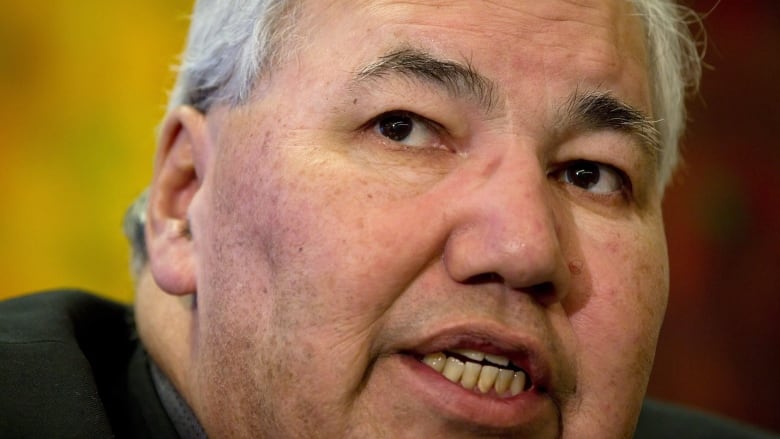Vatican may be asked to repeal Papal Bulls of Discovery on 'heathen' aboriginals
Many argue proclamations legitimized the treatment of Aboriginal Peoples as "less than human."

Canada's Truth and Reconciliation Commission is weighing whether to ask the Vatican to repeal the Papal Bulls of Discovery that granted 15th-century explorers the right to conquer the New World and the "heathen" aboriginals who called it home.
Chair Murray Sinclair says the commission examining the impact of Canada's Indian residential schools is looking carefully at the 1455 and 1493 Catholic edicts as part of its final report.
Many argue the proclamations legitimized the treatment of aboriginal people as "less than human." Crown sovereignty in Canada can be traced back to those papal bulls, and neither Canada nor the United States has repudiated them, Sinclair said.
- Catholic group lobbies Pope to revoke Doctrine of Discovery
- Visit CBC Aboriginal for more top stories
"The movement to repudiation is very strong and is moving ahead," Sinclair told CBC News. "If we as the commission are going to join that movement or endorse it … we have to come to a conclusion that it's necessary for reconciliation to establish a proper relationship between aboriginal and non-aboriginal people."
A growing chorus in Canada is calling on the Vatican to help begin a new relationship, with aboriginal people on equal footing.
'I'm no animal. I'm a person, a human being.'- Keith Matthew, former chief of Simpcw First Nation
The discovery bulls and others in the same vein gave Catholic explorers "full and free power, authority, and jurisdiction of every kind," and outlined their "duty to lead the peoples dwelling in those islands and countries to embrace the Christian religion."
If aboriginal people refused, the Vatican granted its envoys the authority to enslave and kill. If the commission recommends the bulls be rescinded, Sinclair said, it has to weigh the legal implications, which could strike at the core of Crown sovereignty over land.
"What would be the basis for rationalizing Crown sovereignty if the Doctrine of Discovery is no longer available?" Sinclair said.
"We have to consider that question and perhaps give some direction about how that relationship can be re-established in a proper way … on a nation-to-nation level."
A special rapporteur appointed by the United Nations in 2009 found the bulls lie "at the root of the violations of Indigenous Peoples' human rights."
The edicts have resulted in the "mass appropriation of the lands, territories, and resources of Indigenous Peoples," the UN found. They also form the legal basis of many modern-day land claim disputes, it said.
"The papal bulls put us in a position no better than animals. We know better today.- Keith Matthew, former chief of Simpcw First Nation
Keith Matthew, former chief of Simpcw First Nation in British Columbia, has been quietly building support in Canada for their repeal. He recently got the support of the Assembly of First Nations, which passed a resolution at its December meeting endorsing the revocation of the bulls.
It's about hitting the "reset button on our relationship," Matthew said.
"The papal bulls put us in a position no better than animals," he said. "We know better today. We're just as civilized and human as anyone else in this world. It's really about righting a historic wrong.
"I'm no animal. I'm a person, a human being."

"Unless there was corresponding action, it would seem kind of hollow," King said.